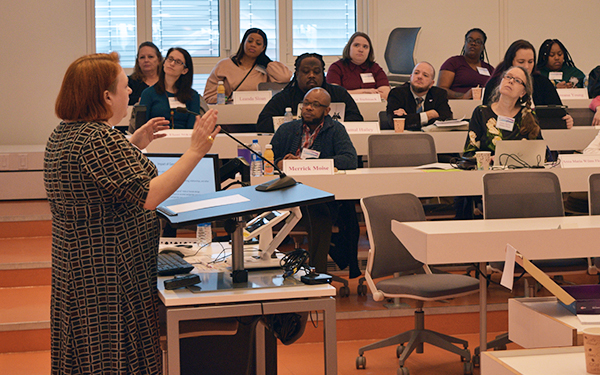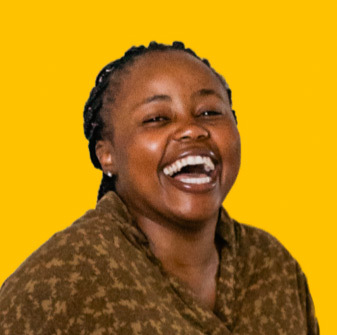Gay men in Baltimore needed STI treatment in 1978, but continually found ineptitude and humiliation from providers who had no knowledge about their patients’ risks or their realities. Chase Brexton Health Care started out in a basement apartment near North Avenue to address that critical need.
Though LGBTQ legal rights and cultural legitimacy are a world away from the stigma of the past, too many of us are still facing clueless or cruel medical experiences in 2021. A recent study published in the Journal of Homosexuality, echoing the dismal findings of those from a decade or two ago, found most primary care providers “did not feel well informed on specific LGBTQ health needs (70.1%), on clinical management of LGBTQ care (74.8%), nor on referring patients with LGBTQ issues (78.7%)” 1
The Center for LGBTQ Health Equity is expanding our clinical training program in LGBTQ health care to narrow that gap. About a quarter of our 40,000 patients are queer and trans folks. As the primary care provider for more than 5,000 gender-diverse individuals, we know that the entire health care system—fellow medical and behavioral health providers, clinical forms and protocols, insurance systems, research priorities—is fundamentally broken for gender expansive people. Taking good care of our communities includes sharing what we’ve learned about LGBTQ health over the past 43 years to improve health and human service workers’ knowledge, attitudes, and skills across our region.
Agencies often contact Chase Brexton’s Health Equity Training Team and request a one-hour training program. Though we are able to offer this service, we have found that most organizations need a more robust strategic plan to implement the culture change necessary to build a safe and affirming health care experience for their LGBTQ patients and staff. We recommend to our partners that they start with a two- or three-hour all-staff training. “All Staff” includes clinicians, nursing care teams, medical assistants, front desk workers, admin staff, security officers, and senior leadership—we encourage agencies to include both cleaning staff and board members.
 An introductory training includes knowledge-building, including learning about health disparities, gender identity development, substance misuse, and the impact of family rejection on LGBTQ health outcomes. We introduce skills such as using affirming language, capturing SOGI (Sexual Orientation and Gender identity) data, responding when someone comes out to you, and how to apologize gracefully if you make a mistake. Finally, we begin the work of shifting attitudes by emphasizing sex-positive harm reduction approaches, unpacking the gender binary, and increasing empathy with storytelling, personal reflection exercises, case studies, and voices of community members.
An introductory training includes knowledge-building, including learning about health disparities, gender identity development, substance misuse, and the impact of family rejection on LGBTQ health outcomes. We introduce skills such as using affirming language, capturing SOGI (Sexual Orientation and Gender identity) data, responding when someone comes out to you, and how to apologize gracefully if you make a mistake. Finally, we begin the work of shifting attitudes by emphasizing sex-positive harm reduction approaches, unpacking the gender binary, and increasing empathy with storytelling, personal reflection exercises, case studies, and voices of community members.
That introductory training is very effective for staff members who are ready to support LGBTQ patients and are eager to learn best practices. But that hardly describes the entire staff of any organization. To create reliable safety for our people, the agency must adopt a culture that insists and reinforces that LGBTQ-affirming care is not coddling for overly sensitive flowers nor a specialty service—affirming care is standard and consistent. It’s what we do here. Anyone who is holding out with a negative attitude or out-of-date care practices is an oddball, and unacceptable behavior will be corrected to fit with the organization’s mission.
Our method for inciting and sustaining that level of culture change is to help these organizations take responsibility for the shift. We ask the agency to identify a group of “Champions” with special interest in LGBTQ care. Our training team works with the Champions to raise their personal level of expertise, then gives them the blueprints for leading discussion groups and learning sessions for their coworkers. This effort is synchronized with policy and leadership consultation and support for supervisors and managers who are implementing policy changes on the ground.
We’re proud of the effort we’re making to turn the dial on improving the quality of healthcare for LGBTQ communities. At the same time, we admire and seek to support the many other excellent LGBTQ trainers and education programs in the Baltimore area. Wonderful news—lots of organizations are out there doing this work well! We wish to connect and collaborate with our educator peers, not to compete. The need for this kind of training is much more enormous than any one organization could meet. The mission of the Center for LGBTQ Health Equity is to enhance the wellness of LGBTQ communities, and we are grateful to be part of inspiring the culture change within healthcare systems that can make our people’s wellness more secure.
For more information about The Center for LGBTQ Health Equity’s training programs, visit https://www.chasebrexton.org/LGBTQHealthTraining.
1Dustin Z. Nowaskie & John S. Sowinski (2019) Primary Care Providers’ Attitudes, Practices, and Knowledge in Treating LGBTQ Communities, Journal of Homosexuality, 66:13, 1927-1947, DOI: 10.1080/00918369.2018.1519304
https://www.tandfonline.com/doi/abs/10.1080/00918369.2018.1519304?journalCode=wjhm20
The Center for LGBTQ Health Equity

